Since the study of ancient poetry is the best vehicle for the transmission of Chinese culture, learning about poetry plays a unique role in Pao School's language and literature education. For a long time, the Middle School has adopted a variety of teaching methods to improve students' appreciation, enable them to experience the beauty of poetry from multiple perspectives, and cultivate their interest in it. The Middle School’s annual Poetry Competition belongs among these. This competition, including multiple rounds, was held for the third time this year. Teachers were keen to use the event to deepen poetic enthusiasm among the students.
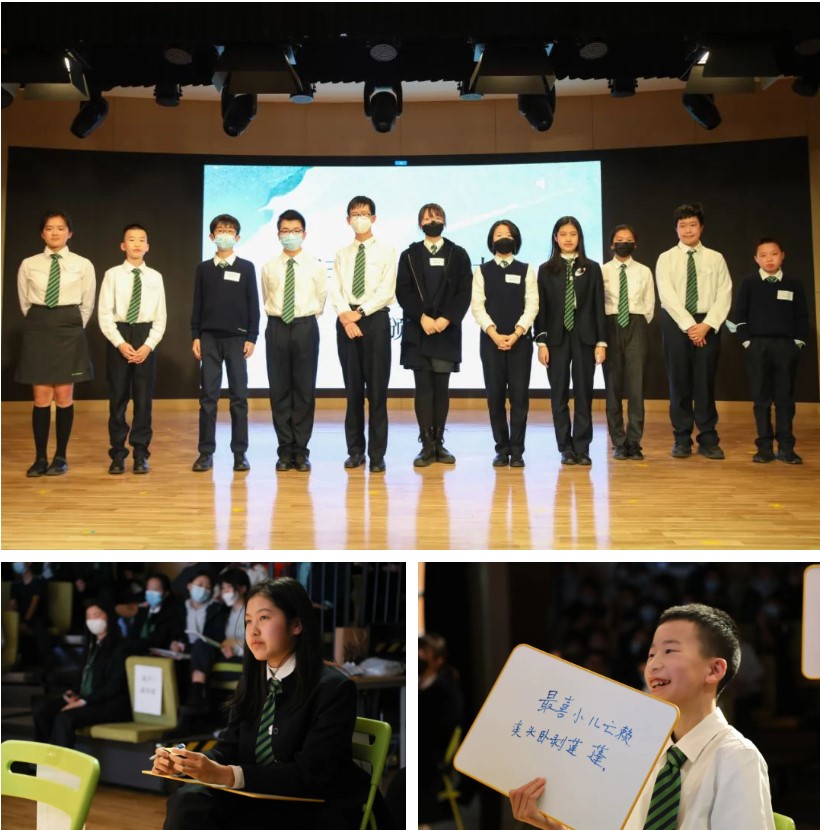
The entire poetry competition is divided into four rounds. First comes the selection competition, in which all registered entrants can participate. Of these, the four attaining the highest scores in each year level proceed to the top 12. There follow 12-to-8 and 8-to-2 competition, before the final championship competition in which the two finalists competed against each other.
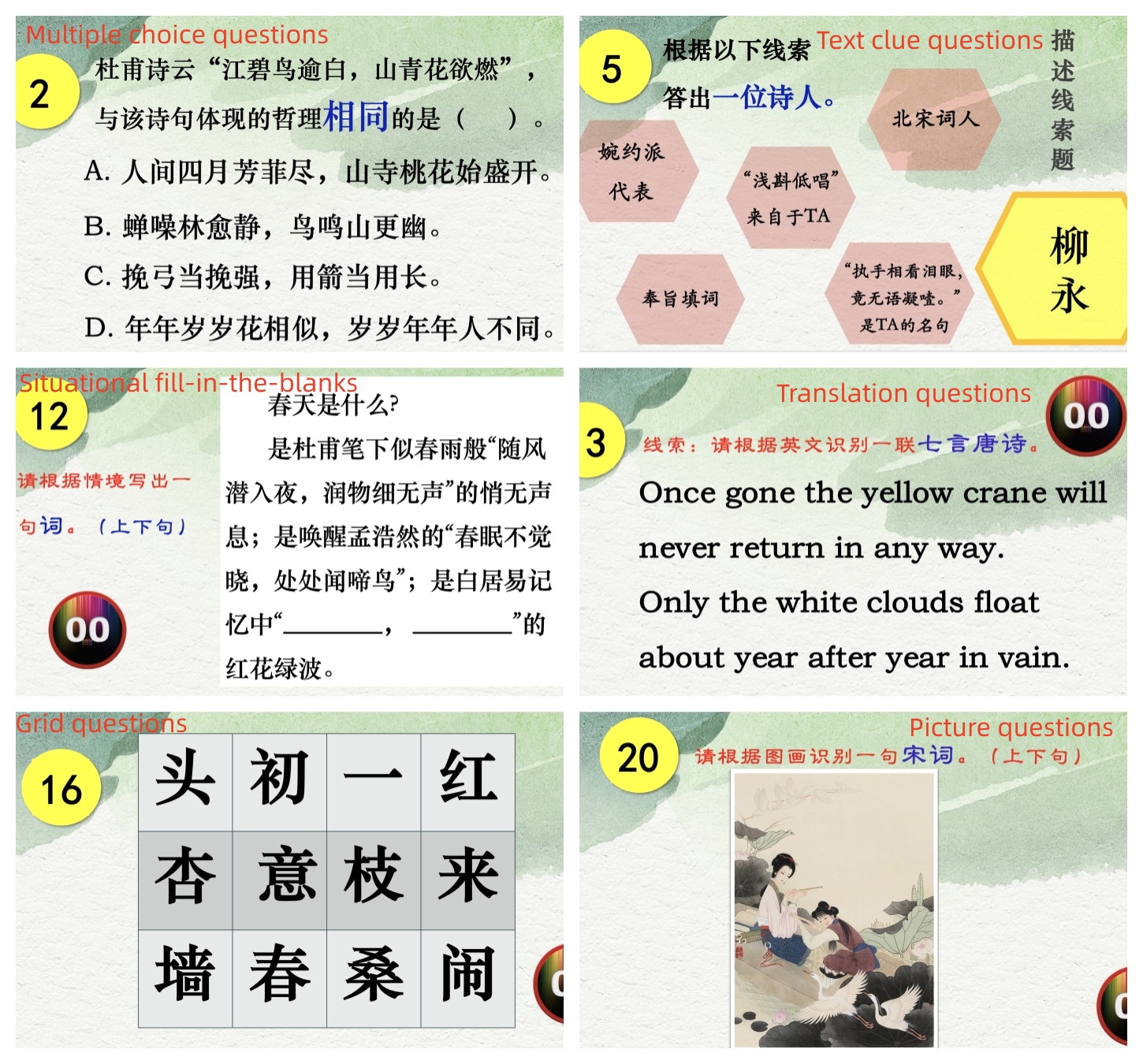
Types of questions
Teachers have designed questions for each round carefully. On the one hand, the questions are made as wide as possible to ensure interest. On the other, as the competition progresses, the difficulty of the questions steadily rises. In order to ensure fairness in the competition among students of all three year levels, the topics are mainly based on poems in the "Pao School Poetry Reader" and Year 6 textbooks.
《Pao School Poetry Reader》
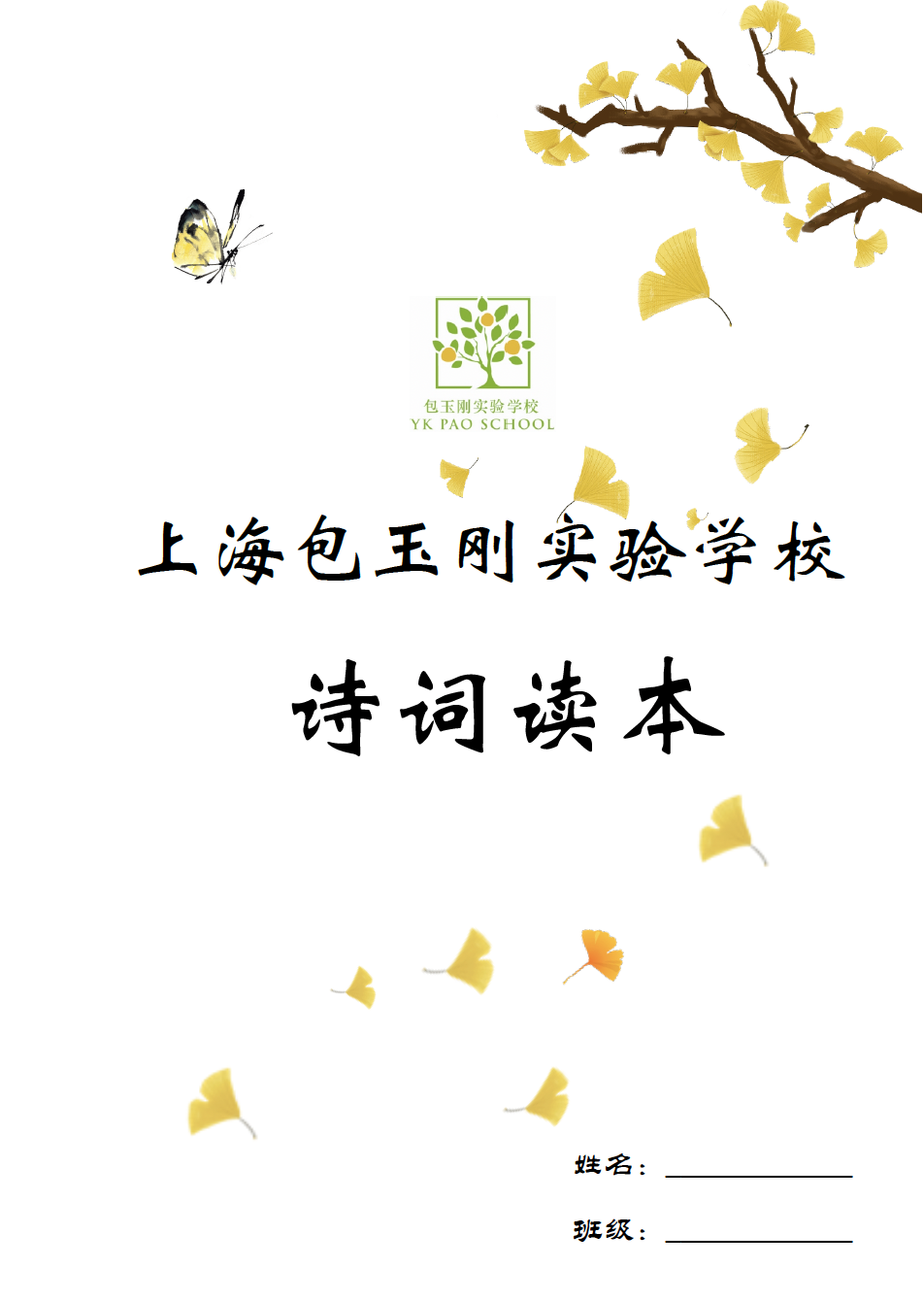
The "Pao School Poetry Reader" is a resource specially prepared for students by the Middle School Chinese Department. It includes both all the poems in the middle school text books for Year 6 to Year 8 as well as 200 additional poems that are familiar to everyone and widely recited. The present "Poetry Reader" is version 4.0, with Chinese teachers making modifications and improvements to the resource each year.
Interest in Chinese literature has flourished. According to Amanda Hu, the most recent poetry competition champion, "The Chinese language teachers at Pao School are very good at inspiring students' enthusiasm for learning, and the teaching methods of Chinese language classes are diverse. Sometimes the teaching is traditional, but at other times it is done through educational games, or in the form of group cooperation and sharing, and yet at others, students take the role of ‘little teachers’ and give lectures at the front of the classroom. On the one hand, this allows the student lecturers to deepen their understanding and knowledge, while on the other, it adds some fun to the class.
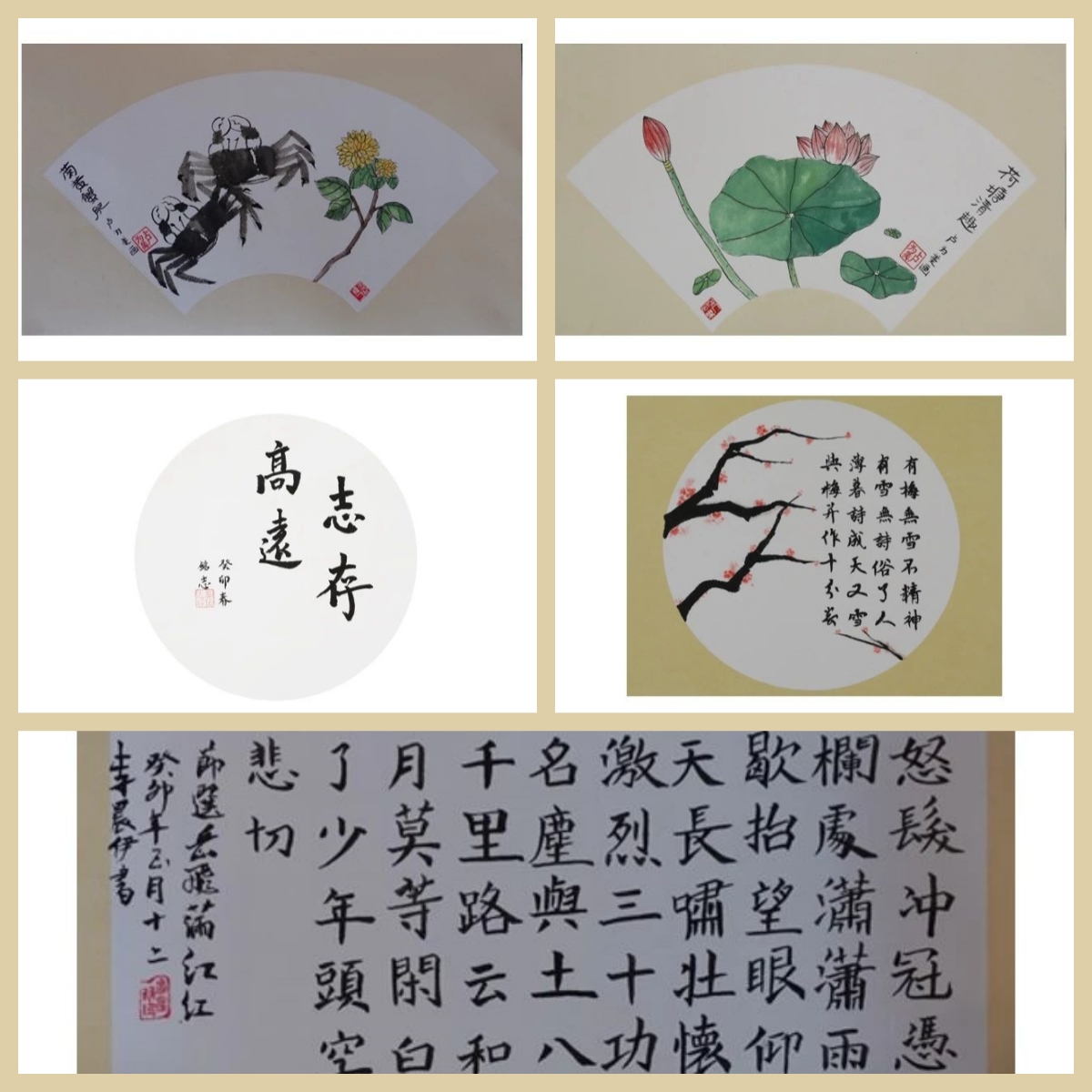
Student poetry works
“I hope that through preparing for the competition, students can learn more poems, love and understand traditional Chinese poems better, and also make these poems part of their daily lives. For students who did not participate in the competition, there were alternative activities set for the three grades: calligraphy, painting and poetry for Year 6, poetry videos for Year 7 and poetry posters for Year 8. These were designed to help students immerse themselves in the atmosphere of poetry and feel its beauty.”
——Jessie Yang, Daisy Sun
Middle School Chinese Teachers
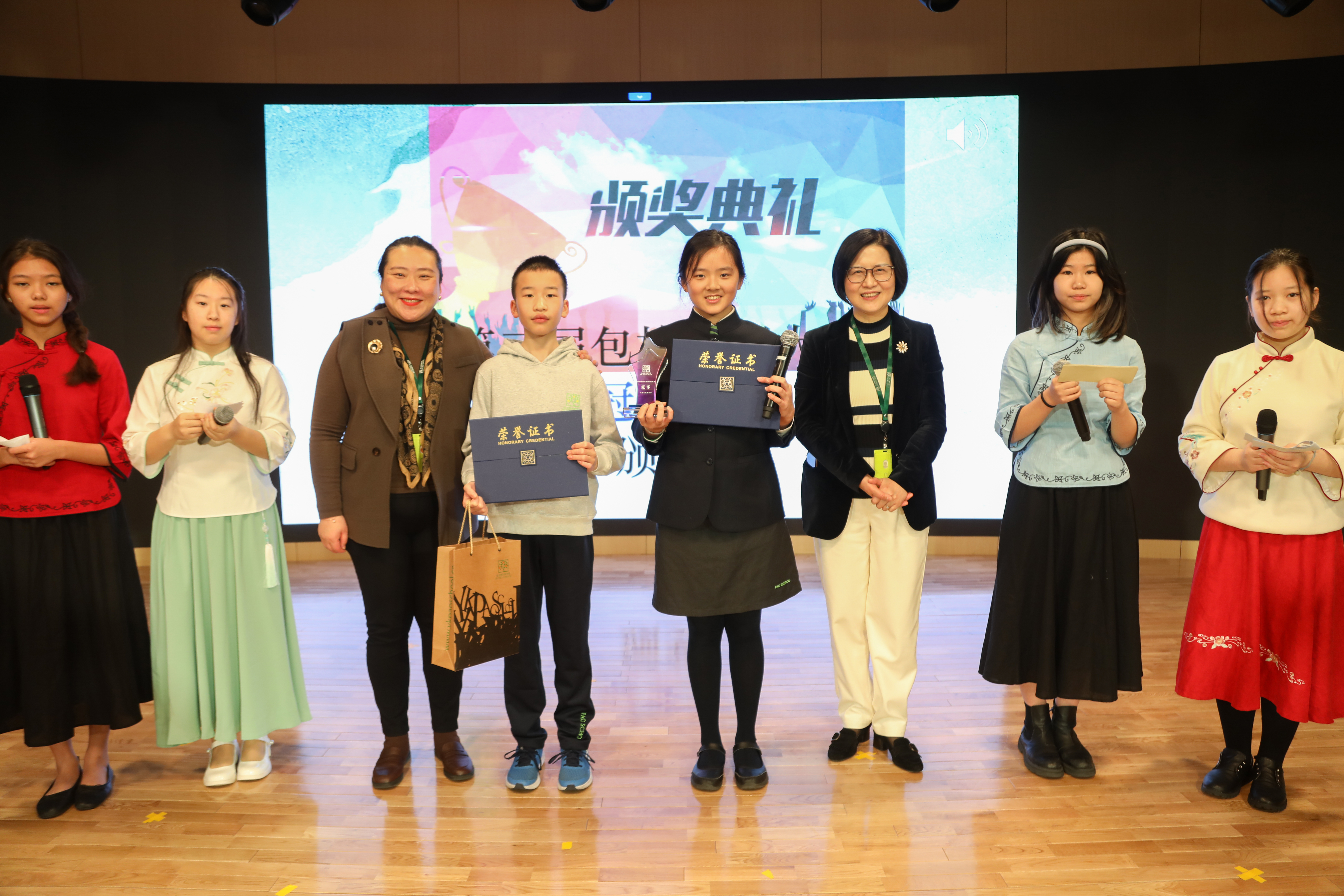
President Xu Yongchu and Middle School Principal and Head of Hongqiao Campus Ada Wang presented awards to students
Perhaps what the teachers did not expect was that both the champion and runner-up of this year's Poetry Competition, Amanda Hu and David Wang, would be from Year 6.
When did you start to like poetry? How much time do you spend studying it?
Amanda Hu: When I was in Year 5, Ms. Tammy, the Chinese teacher, recommended that we watch the CCTV Poetry Contest. At that time, I was struck by how good the contestants were, and doubted my own ability to handle such questions. After entering Middle School, Ms. Wendy gave us a chance to discuss a poem in Chinese class. I chose Liu Yuxi's "Wang Tao Sha", and also said a little about the poet’s life, his friends, and some interesting stories about the characters at that time. The overwhelmingly positive response to this made me realize that poetry could be cool. Soon afterwards, in the Parent Teacher Conference, Ms. Wendy gave me a copy of Pao School's "Poetry Reader" and wrote a word of encouragement. From that day onwards I began to study poetry whole-heartedly and really fell in love with it.
I usually spend my time on the school bus every day between studying poetry and relaxing -- I keep an audio file of poetry explanations with me, which explains "300 Tang Poems" and "300 Song Poems" in vivid language. My favourite Tang poem is Li Shangyin's "Hanbei". Li Shangyin's writing style contrasts with Han Yu's, which really makes people fully feel the breadth and charm of traditional Chinese culture. In this way, I have learnt not only the whole text by heart, but also understand the content and background of the poem. All its allusions make sense to me now.
David Wang: Starting from Year 1, I read poems with my mother every morning. The rhythm and artistic conception of the poems give me a feeling of beauty, so I have a strong interest. Now, because schoolwork is steadily getting more demanding, I have only fragments of time to spend memorizing poems, perhaps 10 to 15 minutes a day, chanting them after getting up in the morning, and reading them on the way to school. From "300 Tang Poems" to "The Book of Songs", from Song Ci to biographies of famous poets, my knowledge has gradually accumulated over time.
Why did you want to participate in the competition and how did you prepare for it?
Amanda Hu: When I first decided to join the competition, with the encouragement of my parents, I set myself the goal of reaching top 12. I began by focusing on understanding, and as the poetry competition approached, I began to concentrate on memorization. Besides the school bus time, I actually only spent half an hour a day on poetry, but I found that once I had understood a poem, it was very easy to recite it.
David Wang: I transferred to Pao School only recently. During my primary school years, I often participated in a variety of ancient poetry competitions. I am delighted see the celebration of classical Chinese literature in a school as international as Pao School.
Regarding preparation for this competition, I am not really nervous, and actually quite relaxed. I don’t think the event is primarily a competition, but rather a stage on which to broaden horizons and make friends. Also, the poetry reader is very well organized and concentrates on the essence of poetry. Reading it strengthened my enthusiasm to participate.
Looking back on the whole process, what do you think were the secrets of your success?
Amanda Hu: The first secret of success was simply studying poetry deeply. This involves not only memorization, but also fully understanding the meaning of each poem, with all its relevant allusions. Luckily for me, the questions of the final round were about understanding of poetry and the ability to adapt on the spot. Furthermore, my Homeroom Teacher, Ms. Josie, organized a strong support group -- signages and enthusiastic cheering from my classmates encouraged me during the competition. I am glad David and I have become good friends now, and we often exchange poetry or other aspects of our learning experience.
